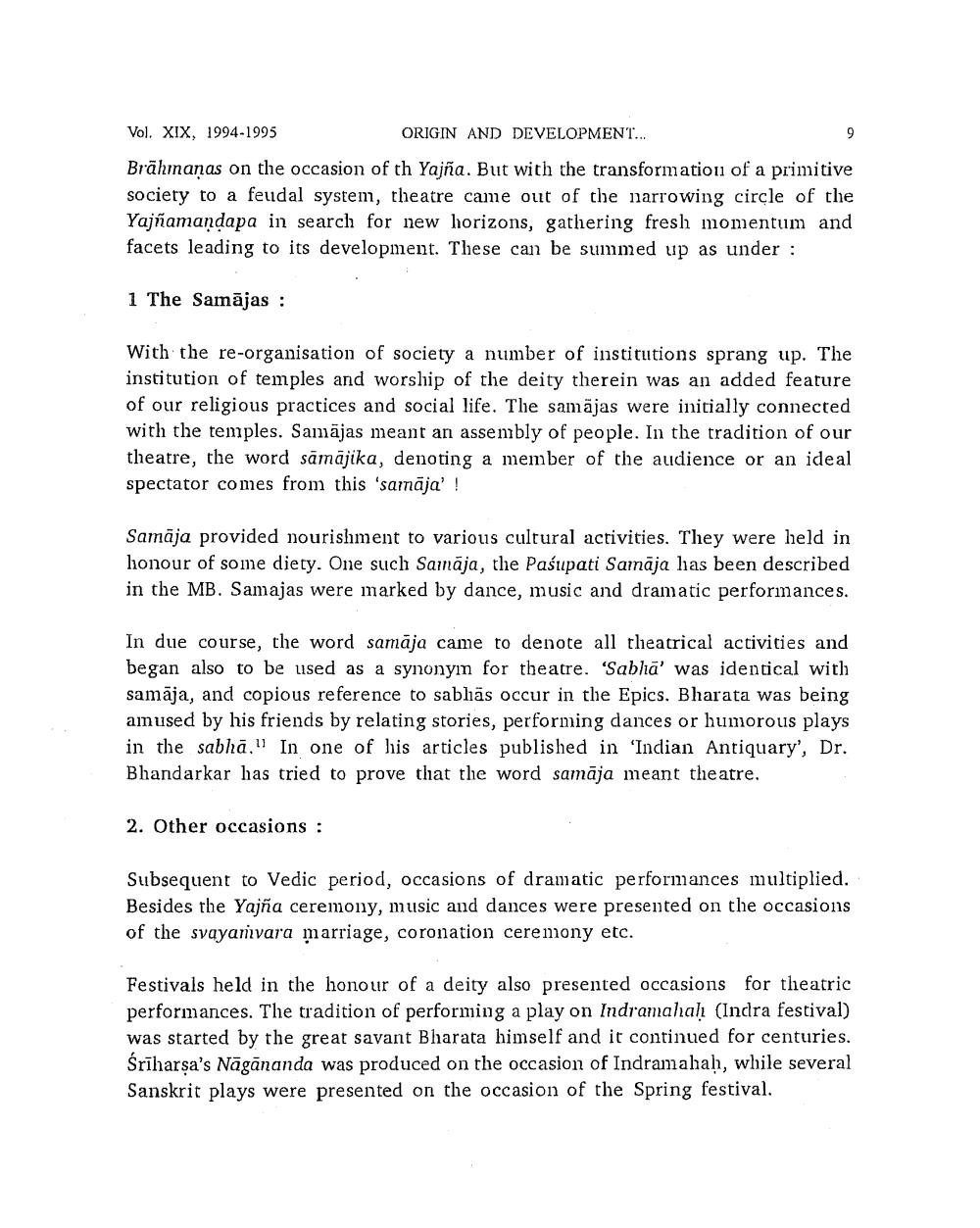________________
Vol. XIX, 1994-1995
ORIGIN AND DEVELOPMENT... Brāhmanas on the occasion of th Yajña. But with the transformation of a primitive society to a feudal system, theatre came out of the narrowing circle of the Yajñamandapa in search for new horizons, gathering fresh momentum and facets leading to its development. These can be summed up as under :
1 The Samājas :
With the re-organisation of society a number of institutions sprang up. The institution of temples and worship of the deity therein was an added feature of our religious practices and social life. The samājas were initially connected with the temples. Samājas meant an assembly of people. In the tradition of our theatre, the word sāmājika, denoting a member of the audience or an ideal spectator comes from this 'samāja'!
Samāja provided nourishment to various cultural activities. They were held in honour of some diety. One such Samāja, the Pasupati Samāja has been described in the MB. Samajas were marked by dance, music and dramatic performances.
In due course, the word samāja came to denote all theatrical activities and began also to be used as a synonyin for theatre. 'Sabhā' was identical with samāja, and copious reference to sabläs occur in the Epics. Bharata was being amused by his friends by relating stories, performing dances or humorous plays in the sabhā." In one of his articles published in 'Indian Antiquary', Dr. Bhandarkar has tried to prove that the word samāja meant theatre.
2. Other occasions :
Subsequent to Vedic period, occasions of dramatic performances multiplied. Besides the Yajña ceremony, music and dances were presented on the occasions of the svayanvara marriage, coronation ceremony etc.
Festivals held in the honour of a deity also presented occasions for theatric performances. The tradition of performing a play on Indramahah (Indra festival) was started by the great savant Bharata himself and it continued for centuries. Śrīharşa's Nāgānanda was produced on the occasion of Indramahah, while several Sanskrit plays were presented on the occasion of the Spring festival.




